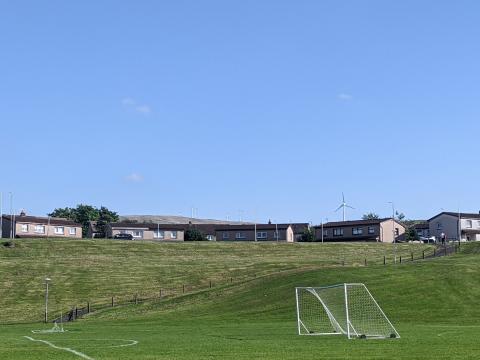- acacia.marshall's Blog
- Log in to post comments

In our previous blog [https://ruralfutures.hutton.ac.uk/blogs/introducing-our-case-studies], we talked about how we are working with eight rural and island case study communities across Scotland over the next few years. The case studies are located in the Argyll Islands, North West Highlands, Orkney Outer Isles, Perth and Kinross, Lewis, South Uist, North East Scotland and South West Scotland. The idea is that, by engaging with residents and community groups over time, we can get an in-depth understanding of how everyday life is experienced, how changes and challenges are manifest in different places, and how policy interventions can be made sensitive to the particularities of place. We are keen to speak to different groups of people during the research, including those who are active in communities and those who may not typically come forward for research, as it’s important that any interventions are informed by a wide range of voices.
In recent months, we have been busy visiting many of the case study communities, speaking to community groups and in some cases conducting interviews with residents and businesses. The interviews are conversational and wide-ranging and ask people about:
- Their reasons for living where they do
- The benefits and challenges of living there
- How things are changing
- The impact of external influences such as the pandemic, the cost-of-living crisis and climate change, and
- How they feel about the future
We don’t expect the people we speak to to be experts in anything other than their own experience, and it is often the case that conversations focus on a particular area of interest or experience that they are keen to share.
Following interviews, recordings are transcribed and we analyse the transcripts to generate insights about each place. We also look at what is being said about particular topics across the case studies, to build a clearer understanding of differences and inequalities between rural and island communities. This analysis is fed back to the Scottish Government and other stakeholders to inform policies and decision-making processes. Our intention is to revisit interviewees as the project progresses, to get a sense of how things are changing and the impact of policies and interventions.
As well as undertaking interviews in some case studies, we are trying to identify how our research can bring more direct benefits to the case study communities. Some ideas are emerging from interviews, others from speaking to community groups, and others from participating in local meetings and events. To highlight a couple of examples:
- One of the case studies involves the Perthshire Artisans and how a digital platform is enabling micro-businesses in rural Perthshire to adapt to social and economic challenges. Following several online meetings, in June 2023 researchers visited three Artisans to hear first-hand about their work and how they are using the platform. These informal discussions highlighted several challenges facing the Artisans, and led the platform facilitators to document the ways in which our research can align with their aims to secure a sustainable future for the platform. We are now developing ideas for how our research can support these aims further, for example by conducting scenario planning workshops that will help to define and further explore key challenges and opportunities as well as help shape a future vision for the platform.
- Discussions with a community group in a second case study, in one of the Argyll islands, has identified an appetite for understanding more about how climate change could affect the island in the coming years. The community group is now a partner in a separate research proposal which, if successful, will fund a part-time post based on the island to work with colleagues at the James Hutton Institute and internationally, drawing on local knowledge to model what the future might look like and to identify the most impactful mitigation measures.
Future blogs will focus on these “actions” in more detail.



